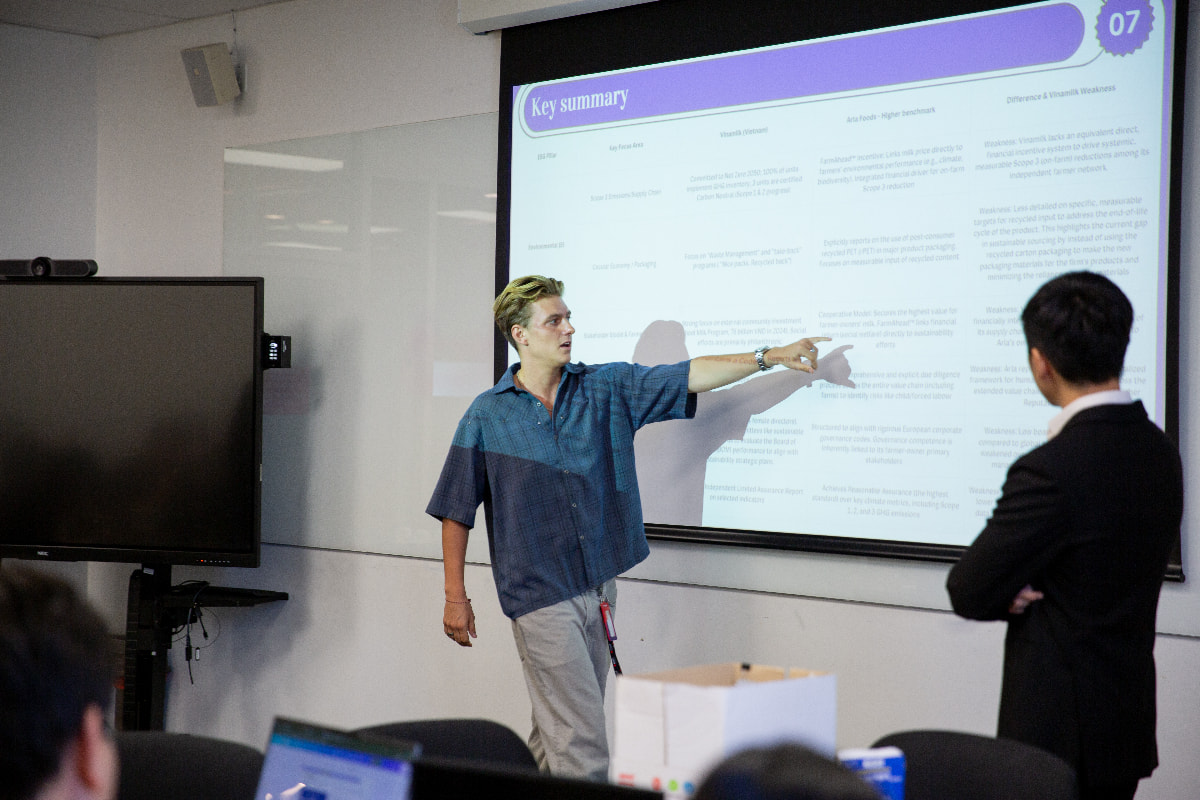How sustainable thinking is reshaping global business at RMIT Vietnam
The “Sustainable International Business Futures” course equips students to lead with purpose – by treating sustainability as a strategic capability, not a side issue.
Tran Tu Quyen and her journey to becoming a strategic, inspiring leader with RMIT
From her MBA journey at RMIT, Tran Tu Quyen transformed from a young professional into a strategic leader.
Preparing leaders for human-centric digital transformation in the AI age: Associate Professor Agnis Stibe
Blending AI-driven digital innovation with behavioural science, AP Agnis Stibe helps students understand how people and technology change together.
From ambition to impact: Vu Khang Thanh’s sustainable leadership powered by MBA scholarship
Vu Khang Thanh is the archetype of the leader the RMIT MBA Scholarship seeks to recognise: guided by long‑term vision, values‑driven, and committed to creating positive community impact alongside generating profit.




